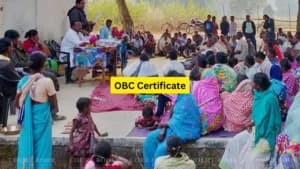In a significant ruling, the Bombay High Court has held that bar associations are not “State” within the meaning of Article 12 of the Constitution of India, and therefore, decisions made by such associations cannot be challenged through writ petitions under Article 226. The decision came in response to a petition filed by four advocates who had challenged a notice issued by the Kolhapur District Bar Association (KDBA).
The division bench of Justices G.S. Kulkarni and Advait Sethna dismissed the petition, which sought to quash the notice dated April 1, 2025. The notice had directed all members to clear their dues before April 1, 2025, failing which they would lose eligibility to vote in the bar association’s upcoming elections.
The petitioners argued that such a restriction was arbitrary and illegal and sought a writ of mandamus to permit members who pay dues after the deadline to participate in the elections. They also contended that since the Bar Council of Maharashtra and Goa exercises some degree of control over the KDBA, the bar association should be treated as a “State” under Article 12.
However, the High Court rejected this argument, observing:
There is no deep or pervasive control of the Government or even of the Bar Council on the bar associations. They are governed by a managing committee elected by its members.
The Court noted that bar associations function independently and are either societies registered under the Societies Registration Act, 1860, or trusts. Their rules and functioning are governed by their own bye-laws and internal regulations, not by governmental control or funding.
“If all such activities, actions and decisions of the bar association are to be subjected to judicial review under Article 226, it would certainly lead to a chaotic situation.”
The Court emphasized that accepting the petitioners’ plea would set a precedent that might extend judicial review to disputes in various professional associations, such as those of doctors, engineers, and chartered accountants. The bench warned that this would open the floodgates for writ petitions in internal matters of private bodies.
The judgment further stated:
“Even otherwise, the relationship between the bar association and its members is governed by the rules of the association, to which the members agree when they join. Merely because advocates are governed by the Advocates Act does not mean writ relief can be granted against the association.”
Read Also:-Religion Is A Factor, But Child's Welfare Paramount: Bombay High Court In Custody Dispute
The Court referred to earlier judgments, including Rajghor Ranjhan Jayantilal vs. Election Scrutiny Committee of B.B.A. and Dilip Shridhar Modgi vs. Thane District Courts Bar Association, which had similarly ruled that bar associations are not “State” entities.
Ultimately, the Court dismissed the petition and directed the petitioners to pursue any grievances by filing a civil suit in the appropriate forum:
We are not inclined to entertain this writ petition. However, the remedy of the petitioners to approach the appropriate Civil Court remains open.















